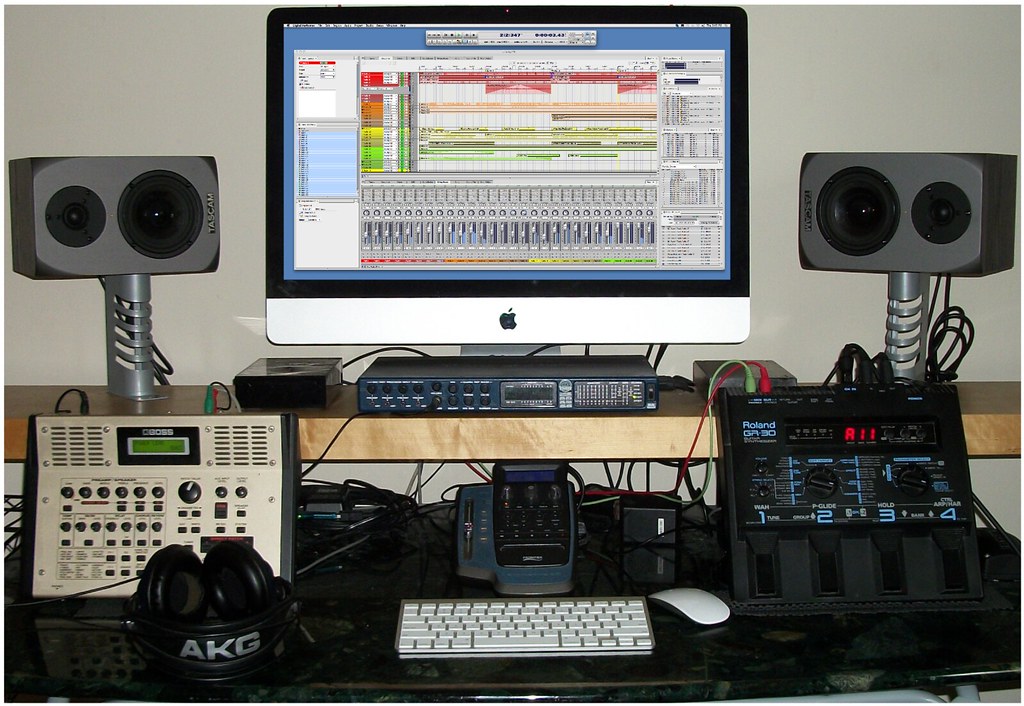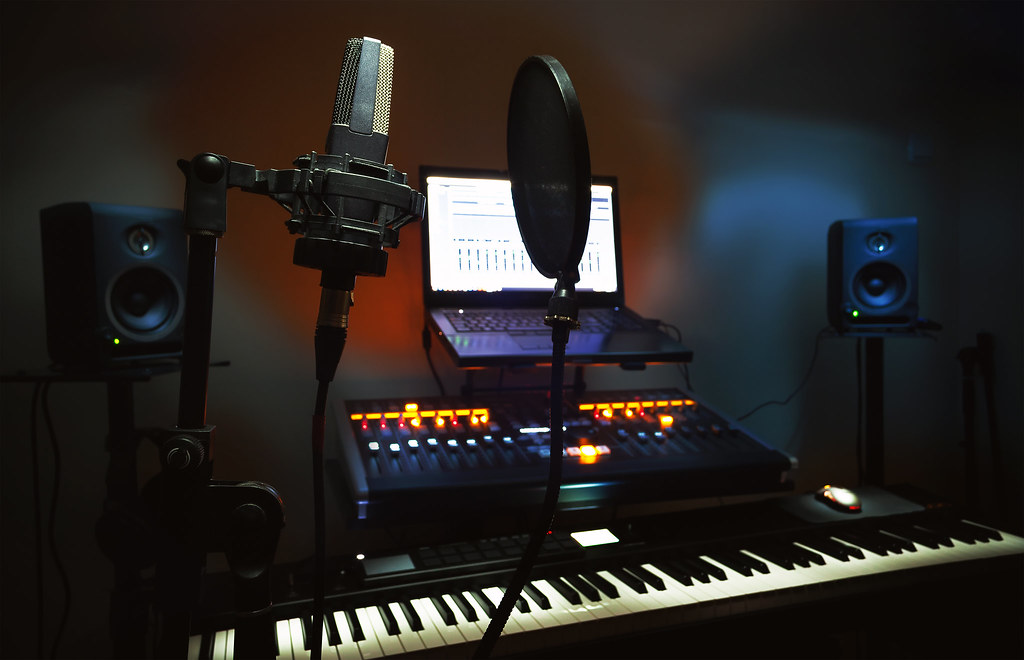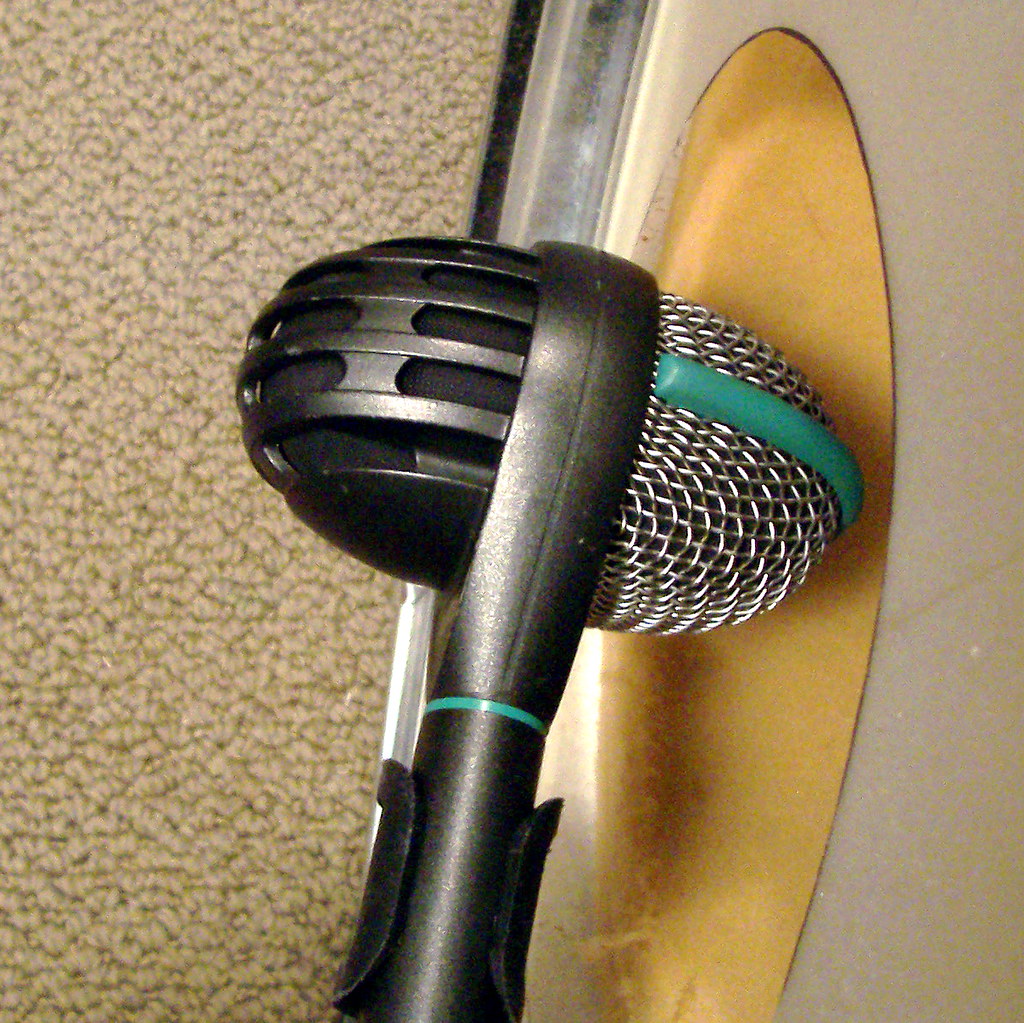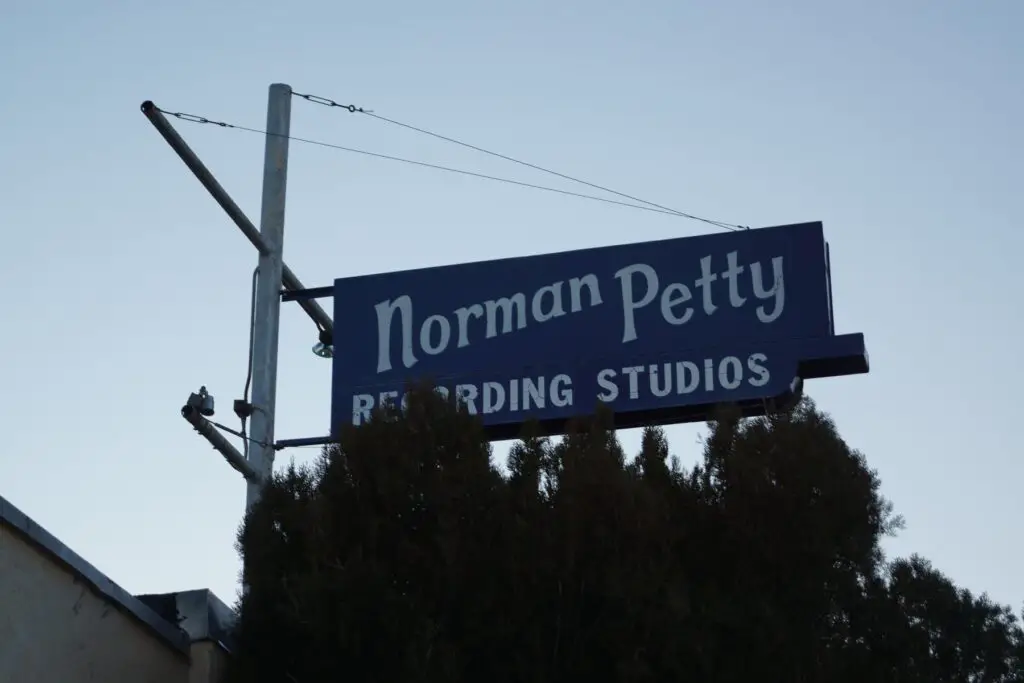Are you looking to start your own home recording studio? A music production starter kit is an essential first step for beginners. With so many options to choose from, it can be overwhelming to know where to begin. In this comprehensive guide, we’ll break down everything you need to know about building your own music production starter kit. From the essential equipment to recommended software, MIDI keyboards, studio headphones and pre-packaged starter kits, we’ll provide expert advice on how to choose the right equipment based on your budget and needs. By the end of this guide, you’ll have all the knowledge you need to create your own music production starter kit and start producing high-quality music from the comfort of your own home.
Table of Contents
What is a Music Production Starter Kit?
A music production starter kit is a comprehensive collection of essential equipment and software required for recording, mixing, and producing music for both beginners and professionals. It is the foundation of any home recording studio and includes the basic tools you need to create high-quality music. A music production starter kit is an excellent way to get started in music production without spending a lot of money on equipment that you may not need, providing a cost-effective way to start your music production journey.
Why having a music production starter kit is crucial for beginners
As a beginner in music production, having a starter kit is crucial for several reasons. Firstly, it provides you with the necessary tools to start producing music without breaking the bank. With a starter kit, you can learn the basic skills and techniques of music production before investing in more expensive equipment. Moreover, a starter kit allows you to experiment and develop your skills without worrying about compatibility issues between different devices and software.
Secondly, a starter kit can help you save time and money by providing you with a complete set of equipment that has been specifically designed for beginners. Instead of having to research and purchase each component separately, a starter kit can save you the hassle and ensure that you have all the essential equipment you need to begin producing music.
Lastly, having a starter kit can help you stay motivated and focused on your music production goals. With a complete set of equipment, you can concentrate on learning and practicing your skills, without getting distracted by compatibility issues or equipment problems. This can help you achieve your goals faster and with less frustration.
Therefore, it is crucial for beginners to invest in a music production starter kit to kickstart their journey in music production and achieve their goals with ease.

Essential Equipment for a Home Recording Studio
To start building your music production starter kit, it is essential to have the right equipment for your home recording studio. Here are the most important pieces of equipment you will need:
Computer
A computer is the backbone of your home recording studio. It is essential to have a computer with enough processing power and memory to run your Digital Audio Workstation (DAW) software smoothly. A high-end computer is not necessary, but you need to choose a computer that meets the minimum requirements for the software you plan to use.
Digital Audio Workstation (DAW) Software
A DAW software is a program that you use to create, record, edit, and produce music. There are many DAW software options available, both free and paid. Some popular DAW software options include Ableton Live, Pro Tools, Logic Pro, and FL Studio. It is essential to choose the right DAW software that suits your music production needs and style.
Audio Interface
An audio interface is a device that connects your computer to other audio equipment, such as microphones, guitars, and keyboards. It is essential to choose an audio interface with enough inputs and outputs for your needs. The number of inputs and outputs you need depends on the type of music you want to create and the number of instruments you want to record simultaneously.
Microphone
A microphone is an essential tool for recording vocals and instruments. There are many types of microphones available, including condenser, dynamic, and ribbon microphones. It is important to choose a microphone that is suitable for your needs and budget. A condenser microphone is the best option for recording vocals, while a dynamic microphone is suitable for recording instruments like drums and electric guitars.
Headphones
Headphones are an essential tool for music production. They allow you to hear the details of your recordings and mixes without interference from outside noise. It is important to choose headphones that are comfortable to wear and provide accurate sound reproduction. Closed-back headphones are suitable for recording, while open-back headphones are suitable for mixing and mastering.
Studio Monitors
Studio monitors are high-quality speakers designed for music production. They provide accurate sound reproduction and allow you to hear the details of your recordings and mixes. It is important to choose studio monitors that are suitable for your needs and budget. Near-field monitors are suitable for small home studios, while mid-field and far-field monitors are suitable for larger studios.
Music Software for Beginners
Music software is an essential tool for any music producer, whether they are a beginner or a professional. There are many types of music software available for beginners, including DAW software, virtual instruments, and effects plugins.
Types of Music Software
Digital Audio Workstation (DAW) Software
DAW software is the backbone of any music production setup. It is the software used to record, edit, and mix music tracks. There are many DAW software available on the market, including free and paid versions. For beginners, we recommend starting with a free or low-cost DAW software, such as GarageBand (Mac) or Audacity (Windows/Mac). These programs are user-friendly and provide essential features for music production.
Virtual Instruments
Virtual instruments are software-based instruments that allow users to create music digitally. They can be used to emulate traditional instruments such as pianos, guitars, and drums. For beginners, we recommend starting with a few basic virtual instruments, such as a piano or a drum kit.
Effects Plugins
Effects plugins are software-based tools that can be used to alter or enhance audio tracks. They can be used to add reverb, delay, compression, or distortion to a track. For beginners, we recommend starting with a few basic effects plugins, such as reverb or delay.
Features to Look for in Music Software
When choosing music software, it’s important to consider the features that are essential for your needs. Some essential features include:
MIDI Editing
MIDI editing is the ability to edit and manipulate MIDI data. This is essential for music producers who want to create and edit MIDI-based music tracks.
Audio Recording and Editing
Audio recording and editing is the ability to record and edit live audio tracks. This is essential for music producers who want to record live instruments or vocals.
Virtual Instruments
Virtual instruments are software-based instruments that allow users to create music digitally. The software should have a variety of virtual instruments to choose from.
Effects Plugins
Effects plugins are software-based tools that can be used to alter or enhance audio tracks. The software should have a variety of effects plugins to choose from.
User Interface
The user interface should be intuitive and user-friendly. It should be easy to navigate and understand, even for beginners.
Compatibility
The software should be compatible with your computer’s operating system and hardware.
By considering these features, you can ensure that you choose the music software that is right for you.

MIDI Keyboard for Music Production
A MIDI keyboard is a valuable tool for composing, arranging, and producing music. It is a musical keyboard that can be used to control virtual instruments in music production. You can play notes, chords, and melodies on the keyboard, which are then transmitted to your computer via MIDI. The computer then plays back the sound using virtual instruments.
Recommended MIDI Keyboards for Beginners
If you’re a beginner, the Akai MPK Mini MKII and the M-Audio Keystation Mini 32 are great options to consider. These MIDI keyboards are affordable, portable, and provide essential features for music production. Both keyboards come with velocity-sensitive keys, which means that the harder you press the keys, the louder the sound will be. Additionally, the Akai MPK Mini MKII has eight backlit drum pads, while the M-Audio Keystation Mini 32 has simple octave up and down buttons.
Features to Look for in a MIDI Keyboard
When choosing a MIDI keyboard, it’s important to consider the number of keys, the number of pads, and the availability of knobs and sliders for controlling virtual instruments. The number of keys you need will depend on your playing style and the types of music you want to produce. If you’re a pianist, you might prefer a full-size keyboard with 88 keys, while if you’re a producer who focuses on electronic music, a smaller keyboard with 25-49 keys might be sufficient.
Pads are also an important consideration. They allow you to trigger drum samples, loops, and other sounds easily. If you plan to make beats or work with drum programming, look for a MIDI keyboard with pads.
Finally, knobs and sliders are useful for controlling parameters in virtual instruments. You can use them to adjust the volume, filter, and other settings in your music software. Many MIDI keyboards come with assignable knobs and sliders, so you can customize them to work with the parameters you use most frequently.
By considering these features in a MIDI keyboard, you’ll be able to find one that suits your needs and budget.

Studio Headphones for Mixing and Mastering
When it comes to music production, studio headphones are crucial for mixing and mastering. They allow you to hear every detail of your mixes in a way that consumer-grade headphones cannot. Studio headphones are designed to provide a flat frequency response, which means that they do not enhance or distort any particular frequency range, allowing you to hear the true sound of your tracks.
Importance of Studio Headphones in Music Production
Studio headphones allow you to hear the nuances of your music that can go unnoticed with consumer-grade headphones. They provide a more accurate representation of your mix, allowing you to identify any issues that need to be addressed. Studio headphones provide an isolated listening environment, which is important for mixing and mastering. They block out external noise, allowing you to focus on your music without any distractions.
Recommended Studio Headphones for Beginners
For beginners, we recommend the Audio-Technica ATH-M30x or the Sony MDR-7506. These headphones provide accurate sound reproduction and are comfortable to wear for extended periods. The Audio-Technica ATH-M30x offers a balanced and detailed sound, while the Sony MDR-7506 offers a warm and smooth sound. Both headphones are affordable and provide excellent value for money.
Features to Look for in Studio Headphones
When choosing studio headphones, it’s important to consider the frequency response, the impedance, and the comfort of the headphones. The frequency response is the range of frequencies that the headphones are able to reproduce. Look for headphones with a flat frequency response, which means that they do not enhance or distort any particular frequency range. The impedance is the amount of electrical resistance that the headphones have. A higher impedance requires more power to drive the headphones, so make sure that your audio interface or headphone amplifier can provide enough power. Finally, comfort is important when you’re spending long hours in the studio. Look for headphones with a comfortable and adjustable headband, as well as ear cups that fit well and are not too tight.

Advanced Music Production Equipment and Software
As you gain more experience in music production, you may find yourself wanting to upgrade to more advanced equipment and software. High-end microphones, analog hardware, and advanced DAW software are just a few examples of what is available to experienced producers. However, it’s important to keep in mind that advanced equipment and software can be expensive, so it’s crucial to invest wisely and only purchase what is necessary for your specific music production needs.
Some high-end microphones to consider include the Neumann U87 and the AKG C414. These microphones are known for their exceptional sound quality and are often used in professional studios. However, they come with a hefty price tag, so it’s essential to ensure they fit within your budget.
Analog hardware, such as compressors and equalizers, can also be a significant investment. These pieces of equipment manipulate the sound in a way that digital plugins cannot, giving your recordings a unique and often more natural sound. Some popular options include the Universal Audio LA-2A and the API 2500.
Advanced DAW software can offer more features and flexibility than beginner-level software. Some popular options include Ableton Live, Logic Pro X, and Pro Tools. These programs allow for more advanced audio editing, mixing, and mastering capabilities.
When considering upgrading to more advanced equipment and software, it’s important to assess your specific needs and budget. It may be helpful to consult with experienced producers or audio engineers to determine what equipment and software will be most beneficial for your music production goals.

Recommended Music Production Starter Kits
If you are a beginner in music production, pre-packaged starter kits can be an excellent way to get you started without breaking the bank. These starter kits usually consist of the essential equipment and software needed to record, mix, and produce music.
Overview of pre-packaged sets of equipment designed for beginners
Starter kits are available in different configurations depending on your needs and budget. They are designed to provide all the essential equipment and software required to start producing music. These pre-packaged sets are designed to save you time and money by providing you with everything you need to get started in one convenient package.
Recommended starter kits for different budgets
For beginners on a tight budget, we recommend the Focusrite Scarlett 2i2 Studio Bundle or the PreSonus AudioBox iTwo Studio. These starter kits are affordable and provide essential equipment and software for music production.
For those with a higher budget, we recommend the Universal Audio Apollo Twin Solo or the Native Instruments Komplete Audio 6. These starter kits provide high-quality equipment and software for professional-level music production.
Features to look for in a starter kit
When choosing a starter kit, it’s essential to consider the equipment and software included in the kit, as well as your needs and budget. Look for starter kits that include essential equipment and software for music production, such as a computer, DAW software, audio interface, microphone, and headphones.
Moreover, consider the type and quality of the equipment and software included in the kit. Ensure that the DAW software is compatible with your computer’s operating system, and the microphone is appropriate for the type of music you intend to produce. Additionally, check the quality of the audio interface, headphones, and studio monitors in the package to ensure they meet your production needs.
Overall, the best starter kit for you depends on your budget and needs. Choose a starter kit that includes all the essentials and fits your budget, and you’ll be well on your way to producing your first hit track.
Tips for Putting Together Your Music Production Starter Kit
When putting together your music production starter kit, there are a few insider tips you should keep in mind to make the most of your equipment and software. These tips will help you get started on the right foot:
Don’t Get Too Hung Up on Gear
While it’s important to have quality equipment, don’t let it hold you back from getting started. Remember, your starter kit is just that, a starting point. Focus on building a solid foundation with what you have, and upgrade as needed. You can always add to your setup later once you’ve honed your skills and identified the areas where you require additional gear.
Learn Your Gear Inside and Out
Take the time to read the manuals and watch tutorials to fully understand the capabilities of your equipment and software. This will help you to get the most out of them and improve your skills. It’s a good idea to start with the basics and then move on to more advanced techniques as you become more comfortable with your gear.
Experiment with Your Equipment and Software
Don’t be afraid to try new things and experiment with different techniques. This is the best way to discover your own unique sound and style. Try different microphone placements, experiment with different effects and plugins, and don’t be afraid to push your gear to its limits. You never know what kind of creative ideas you might come up with!
Industry Trends and Future Developments
The music production industry is an ever-changing one, with new technologies and trends emerging regularly. As we move forward, the industry is set to experience significant changes that will impact the way music is produced, distributed, and consumed.
Artificial Intelligence and Machine Learning
Music production is set to benefit greatly from advancements in artificial intelligence (AI) and machine learning (ML) technologies. AI and ML algorithms can analyze music data and provide insights on how to improve the quality of sound. They can even automate some of the processes involved in music production, such as mixing and mastering. These technologies will undoubtedly change the way music is produced and pave the way for a new generation of music producers.
Virtual Reality and Augmented Reality
Virtual Reality (VR) and Augmented Reality (AR) technologies are becoming increasingly popular, and the music production industry is no exception. These technologies are being used to create immersive experiences for music fans, allowing them to interact with music in new and exciting ways. Music producers are also using VR and AR technologies to create immersive music videos and live performances.
Cloud-based Collaboration Platforms
Cloud-based collaboration platforms are becoming an essential tool for music producers, allowing them to work together on music projects from anywhere in the world. These platforms provide a secure and collaborative environment for music producers to share ideas, collaborate on projects, and access a wide range of tools and resources.
As the music production industry continues to evolve, it’s important to stay up-to-date on new technologies and trends to stay ahead of the curve. By embracing these new technologies, music producers can create innovative and exciting music that resonates with audiences around the world.
Disclaimer
The recommendations provided in this article are based on the author’s opinion and experience. However, readers should do their own research and make decisions based on their individual needs and budget. The author is not responsible for any consequences that may arise from following these recommendations.
With this comprehensive guide to building your music production starter kit, you’ll be able to choose the right equipment and software to kickstart your music production journey. Remember to focus on building a solid foundation and learn your gear to hone your skills in music production. Experimentation will help you discover your own unique sound and style. Put in the work, and the results will speak for themselves.
Don’t forget to check out our other articles on home recording studio equipment, music production software, and more to keep building your knowledge and skills in music production.

